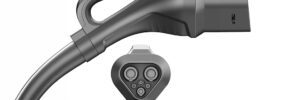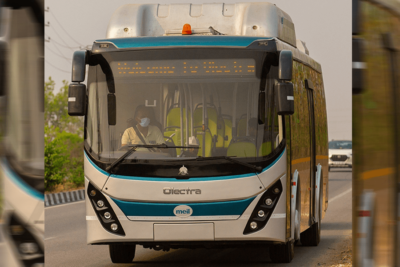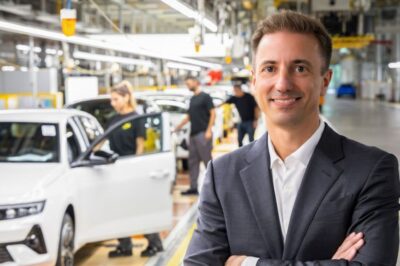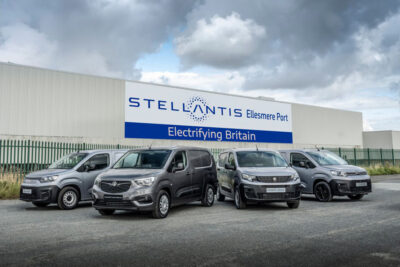
11 Dec 2024 | VW Lowers ID Prices, Quad Motor BMW’s Are Coming and Battery Costs Continue To Plummet


Manufacturers and operators of systems with complex electrical infrastructures need reliable, proven options to insulate components against heat and electric current, provide strain relief for connectors and joints/splices, and protect and seal electric cable, wiring and components against water ingress, exposure to chemicals and damage from abrasion or bending. Today, heat shrink tubing and components offers a versatile, reliable and cost-effective option to address all of these operational challenges.
In recent years, the development and commercialization of co-extruded and triple-extruded heat shrink components have created additional ways to combine form and function. Specifically, co-extruded heat shrink parts benefit from the marriage of two high performance materials, by combining an outer heat shrink thermoplastic layer with an inner elastomeric material. Once the single co-extruded tube or part is installed, its inner layer conforms more reliably to irregular surface, while the outer heat shrink layer protects the underlying electrical cable or component from challenges present in the surrounding environment.
This white paper provides an in-depth discussion of the inherent advantages that can result when heat shrink components and accessories are selected to terminate and connect electrical cables and connections, to maximize system reliability, reduce unplanned downtime, streamline field installation, and simplify the management of spare parts inventories to support routine maintenance and operation.

Wireless EV charging developer Electreon is collaborating with the State of Michigan and Xos, a manufacturer of electric trucks, on a project that includes the integration of Electreon’s wireless charging technology into a Xos Stepvan, as well as installation of stationary wireless charging at a Detroit UPS facility.
Funding of $200,000 came from the Michigan Mobility Funding Platform (MMFP), which supports testing and deployment of mobility projects in the state. Electreon received additional funding from the Michigan Central Scale Fund.
The project expands on Detroit’s electric roadway, which was launched at the Michigan Central Innovation District in the city’s Corktown neighborhood in November 2023. Equipped with Electreon wireless charging infrastructure, the roadway is capable of charging EVs wirelessly while in motion.
“Electreon, UPS and Xos aim to show a unique approach to commercial EV charging, including both stationary and dynamic wireless charging, which eliminates operational interruptions and charging downtime. This solution can also offer extended vehicle range capabilities without the need for expensive electric grid upgrades or purchasing larger vehicle batteries,” Electreon stated.

CALSTART, a US-based clean transportation nonprofit, has recommended three recipients for a total of $43 million in first-round California Energy Commission (CEC) grant funds: Sparkz, Sepion Technologies and South 8 Technologies in partnership with Nanotech Energy.
The selection follows an evaluation of 14 applications that were submitted in April as part of California PowerForward battery-manufacturing infrastructure grant program.
Sepion Technologies plans to build a lithium-ion battery separator manufacturing facility in West Sacramento, California with the grant.
Sparkz has opened its Sacramento manufacturing facility, which will serve as the project location for its PowerForward project.
“Through programs like PowerForward, Sparkz is able to accelerate the scale-up of its battery material manufacturing to meet growing domestic customer demands as programs like the Inflation Reduction Act and Bipartisan Infrastructure Law provide tax credit opportunities to domestic battery consumers,” said Sanjiv Malhotra, founder and CEO, Sparkz.
South 8 will expand manufacturing of its LiGas electrolyte in San Diego and integrate a LiGas injection system into Nanotech’s battery cell production facility in Chico to provide LiGas battery cells for zero-emission vehicles and other applications.
“CALSTART is excited to announce the awards for the PowerForward program, which will grow critical elements in the battery supply chain, and foster innovation and collaboration throughout the state,” said Phoebe Bisnoff, CALSTART’s Battery Manufacturing Program Manager.
Source: CALSTART

Commercial EV charging providers are gradually rolling out chargers compliant with the new Megawatt Charging System (MCS). Now UK charge point supplier Project EV has presented a charger that supports vehicle-to-grid (V2G) technology, which could provide an additional source of income for electrified commercial fleets.
As Electrive reports, Project EV’s new charger was “designed for high-demand charging environments such as commercial locations, large fleet operations and highway rest stops.” The power cabinet can support up to ten outlets, and is compatible with liquid-cooled and air-cooled systems. Few other technical details are available at the moment.
The new charger was developed in collaboration with the UK’s Department for Energy Security & Net Zero and Innovate UK. It is part of the Electric Heavy Goods Vehicles—first roll-out and demonstration of V2X and grid decarbonisation project, which aims to demonstrate the “V2G services potential of electric HGVs (eHGVs)—load-balancing, frequency stabilisation and resilience.” The project is headed by Kaasai Services and received 1.4 million pounds in funding from the UK government.
“Over the past year, our team has worked tirelessly to design and deliver the cutting-edge hardware for this trial,” said Richard Pink, Chief Technology Officer at Project EV. “We are immensely proud of the innovative charging solution we’ve developed, featuring exceptional versatility with multiple charging guns tailored to meet diverse customer requirements.”
Source: Electrive

CBMM, a global specialist in the production of niobium products, has opened a manufacturing facility dedicated to producing Echion Technologies’ proprietary XNO active anode material. The new plant, located in Araxá, Brazil, is capable of producing 2,000 tons per year of XNO, equivalent to 1 GWh of Li-ion cells.
As part of its strategic growth plan, CBMM aims to reach a capacity of 20,000 tons of niobium oxide for batteries by 2030.
The recent ribbon-cutting ceremony for the new plant “marked a significant milestone in the strategic partnership between CBMM and Echion and represents a major step forward in the companies’ joint goal of expanding the use of niobium in battery production.”
Echion says its niobium-based anode material, XNO, enables Li-ion batteries to charge safely at high speeds, maintain high energy densities even at extreme temperatures, and deliver high power across a cycle life of more than 10,000 cycles. XNO has been specifically engineered to power electrified heavy-duty industrial, commercial and mass transit vehicles.
“The opening of this production plant creates robust supply capacity to meet the significant commercial demand we have for XNO,” said Jean de La Verpilliere, CEO of Echion Technologies. “XNO is already having a positive impact on our cell manufacturing customers, downstream OEMs and end users. Echion is beginning to trade at scale, and that is a major milestone for company growth.”
Source: CBMM

Grappling with escalating air pollution, India’s financial capital Mumbai is intensifying efforts to make public transport eco-friendly. The city is planning a large fleet of 8,000 electric buses.

With immediate effect, Florian Huettl will be responsible for Stellantis’ activities in Germany in addition to his position as CEO of Opel/Vauxhall. The new dual position is intended to help increase efficiency in the local business. The previous head of Stellantis Germany was Lars Bialkowski.

Following the departure of CEO Carlos Tavares, car manufacturer Stellantis wants to rejoin the European manufacturers’ association ACEA. Under Tavares, Stellantis had left the association in 2022.

The Swedish transport authority Skånetrafiken has just awarded public transport provider Nobina the contract to operate and expand bus services in Malmö for twelve years from June 2027. Nobina has pledged to ensure that 95 per cent of the 300 buses the company operates in Malmo will be electric by 2027, with the rest electrified in the years shortly after.